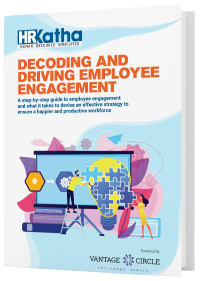The Four Distinct Types of Organizational Culture and its Advantages

Organizational culture is defined as the underlying beliefs, assumptions, values, and ways of interacting that contribute to an organization's unique social and psychological environment.
Every human organization begins with a purpose, shaping the organizational structure and keeping every member aligned to its goals and objectives.
If you observe, every small/big organization has a unique way of doing things. It does not matter if it's a small family business operating in a small town or large global corporations spanning cultures and time zones. They all have their own identity, beliefs, assumptions, and unique way of doing things.
Beliefs and assumptions are developed from what we perceive from our surroundings and the experiences we have from our actions. And we instill these sets of ideologies in our work environment.
In a business meeting or general workplace conversation, you often hear statements like 'This is how we do things here, or 'We do not practice this type of behavior.'
These statements more or less explain the distinct organizational culture and mode of conduct of an organization.
Here in this blog, I shall discuss the four distinct types of organizational culture and their advantages.
Clan Culture:
A clan culture is a family-like type of corporate environment where everyone's views and ideas are valued. Clan cultures have a friendly, collaborative culture and are often compared to a large family. This type of culture emphasizes the consensus of the employees while taking any business decision. Helping each other during working hours, eating lunch together, playing games in the evening, and celebrating each other's happy memories are the attributes of the clan culture.
Advantages of Clan Culture-
-
Productivity and company growth is consistent in this type of culture.
-
There are clear communication and transparency. Every member is comfortable voicing their opinion and ideas.
-
Employees are appreciated for their excellent work and also criticized constructively without hurting their sentiments.
Adhocracy Culture:
Adhocracy culture is a risk-taking culture. Here organizational leaders are innovative and creative in their approach. They are inspirational innovators who accept challenges, take risks, and ready to break organizational assumptions. Employees get their chances to spin their balls multiple times when they miss it.
Advantages of Adhocracy Culture-
-
A shared commitment to innovation at every level of the organization.
-
Competitive advantage in the marketplace.
-
An inclusive environment that welcomes all ideas.
Market Culture:
Market culture is results-driven, market-orientated, and highly competitive. This culture thrives for results and works relentlessly to penetrate the market and get maximum shares. This type of culture is most common in more giant corporations, where leaders are relentless, strong, and have very high expectations of their teams. Employees are given challenging goals, and they are pushed to achieve those at any cost. Performance is closely monitored, for which it's not unusual for employees to be rewarded and punished. Getting the job done is the number one priority in this type of company culture.
Advantages of Market Culture-
-
Goals are met, or if they aren't, new ways are explored to reach them.
-
Employees are consistently pushed to go the extra mile and are driven and inspired by their leaders.
-
They are always ready to react to any changes in the market to ensure they maintain the market share and stay ahead of the game.
Hierarchy Culture:
Hierarchy Culture is a formalized and structured work environment. Leaders are proud of their efficiency-based coordination and organization. Keeping the organization functioning smoothly is most crucial here. Formal rules and policies support the organization together. The long-term goals are stability and results and are directly paired with the efficient and smooth execution of tasks.
Advantages of Hierarchy Culture-
-
Employees who work for hierarchical companies feel more secure, get paid on time, and are safe to stay in their role in the long run.
-
Benefits of promotion lead to exclusive advanced status and reward. This can prove a great motivator for employees.
-
Employees gain level through consistent hard work and effort within a set role. By focusing on their work alone, they are more likely to achieve expert status in that one field.
End-Note:
Organizational cultures are rooted in the organization's beliefs, but it does not imply that the rules cannot be bend. It is a wise choice to develop a flexible culture that adapts to the change in the business processes in the world. Also, in modern workplaces retaining the employees and also keeping them engaged is a huge task. Company culture is one of the main reasons why employees remain dissatisfied in their jobs. Therefore, it is critical to building a culture that helps in the organization's bottom line and keeps everyone happy and satisfied in their careers.

Vantage Circle is a simple AI-powered Rewards & Recognition Platform for upgrading your employee experience and engagement for better productivity.






